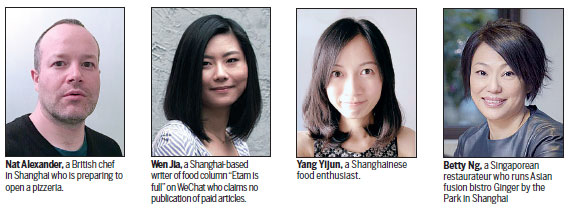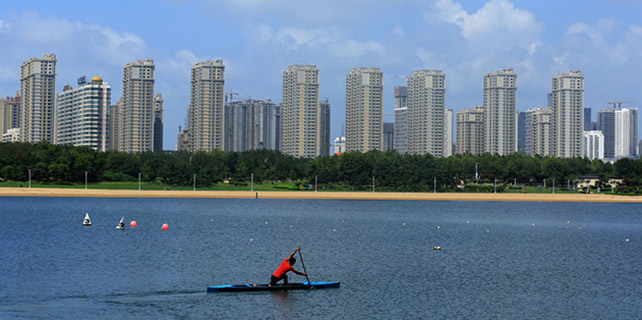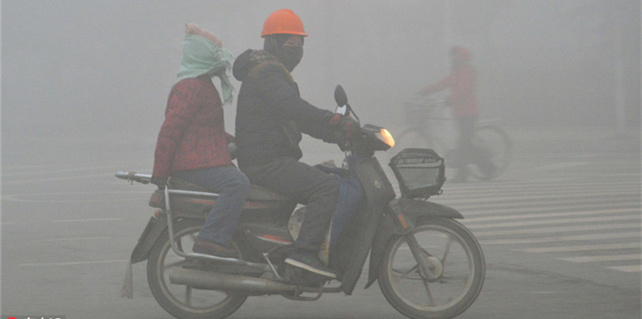Discussing the merits of the Michelin

China Daily speaks to four experts of the local food scene to find out what they think of the Michelin Guide Shanghai which made its debut in September, awarding 26 restaurants with total of 31 stars.
Q: Will you consider dining at the restaurants in the Michelin Guide Shanghai? When you want to dine out in the city, what do you usually refer to?
NA: I have eaten at several restaurants listed in the guide even before it came to Shanghai. I wouldn't choose to eat anywhere in Shanghai because of a Michelin rating as I tend to follow personal recommendations from friends and acquaintances instead. The English magazines and websites are good for keeping on top of new openings of Western restaurants.
WJ: I see Michelin as a guide for tourists that manages to sustain a rather sophisticated and objective standard that is still largely missing among Chinese food critics. When I am traveling and the destination I'm at has a Michelin Guide, I would definitely refer to it. For Shanghai, however, I usually refer to multiple sources, including media and personal recommendations.
YY: Yes, I would definitely consider trying them but the priorities are those that serve non-Chinese cuisines, because their cooking methods are geared toward Western palates. I don't think their take on Chinese cuisines will be the same as those born and bred in China. When I'm dining out, I would usually choose a place based on a combination of what I read on social media, friends' recommendations and reviews on Dianping.com (the Chinese equivalent of Yelp).
BN: Certainly. There are quite a few restaurants listed in the Michelin guide that I have not been to and I would visit them out of curiosity. New experiences give me inspiration and broaden my horizons. I do not use any references in Shanghai when dining out. The references I rely on are from our group of restauranteurs, chefs, food critics and friends who are not from our industry.
Q: What do you think of the criticism levelled at the Michelin Guide Shanghai? Do you think Shanghai needs a Michelin guide to be a more globally significant food destination?
NA: Everyone who lives here has their own understanding of Shanghai's restaurants and Michelin came in with their own point of view, which was contrary to the perceptions of most people.
It did appear that their inspectors had a limited understanding of local cuisine, or a low opinion of it, based on the lack of restaurants offering cuisines from the Yangtze River Delta. This is something that is unlikely to endear people to the guide.
I don't think Shanghai needs validation from Michelin. Shanghai is already a globally significant food city, but this isn't because of famous chefs opening restaurants here - it's because the city already has its own unique food culture. Michelin needs Shanghai far more than Shanghai needs Michelin.
WJ: I think it's normal to have controversies when Michelin enters a new market and it takes time for the city and its people to adapt to its logic before deciding whether to accept it or not. I believe even the regular users of Michelin wouldn't take it as the Bible. For China, it could be seen as a credible guide that reviews restaurants from the perspective of diners.
I think Shanghai needs a Michelin guide to become an international tourist destination. In some way, it's an important media for international travelers to know about the city.
YY: I think there are several reasons. A rather high cost-per-capita of most awardees might be one of the reasons, giving many the impression that Michelin only picks expensive restaurants.
The news that one of the awarded restaurants was later found to be operating without the proper licence might have also tarnished the image of Michelin.
I don't think the Michelin Guide is a must for Shanghai. But it's more positive for the city as it means Shanghai has become a highly internationalized city in terms of diversity and level of sophistication.
BN: A Michelin listing could be compared to being awarded a knighthood or a national medal of honor.
However, being recognized by Michelin has commercial implications. Some restaurants tie their commercial success to being on the list while for those that have not been recognized, it is deemed as a personal and commercial disappointment.
So I guess that is where some of the criticism might be rooted. Considering how there are many deserving restaurants in Shanghai, some difficult choices had to be made to respect the industry.
Over the past 90 years the Michelin Guide has defined international standards and I feel it was high time to put China on the Michelin map as this country has an exquisite food culture with a long history.
Q: What are some of the changes in the local food scene in recent years?
NA: When I look back at the progression of the local food scene over the last five to 10 years, the scene has definitely changed. I've noticed that there are now far better-designed places by local restaurateurs and investors and this reflects a growing maturity and aesthetic awareness.
However, I am sad to find the rate at which old neighborhoods are being razed and the rate at which we are moving toward a more homogenized market of mall-based restaurants and branded chains.
WJ: One thing I heard recently is that the launch of the Michelin Guide Shanghai in September has attracted some "hot money" from the financial markets. A number of investors are apparently eager to back chefs or restaurants that offer cuisines from the Yangtze River Delta so that they can secure a Michelin star next year.
YY: I don't think I am very updated about the happenings in the restaurant industry as I used to be, since there are now too many articles that restaurants pay Internet celebrities to write. I interpret this as how information is communicated differently nowadays and how restaurants are taking advantage of the influence of web celebrities to lure customers.
BN: One of the most profound changes I found was that more Chinese diners are leaving their comfort zone and embracing international food.
















